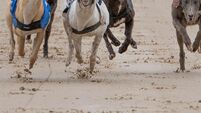Banned elsewhere, funded here: Why Ireland still supports greyhound racing

Greyhounds, as pets, typically live 12 years on average. Having roughly a third of animals bred dying inside three years would seem to be a staggering waste of life. File Picture: iStock
Last week, the Welsh government moved to end greyhound racing in Wales “as soon as practically possible” following a cross-party call for a ban on foot of animal welfare concerns.
That move follows a similar decision delivered last December by the New Zealand government, proposing the phasing out of greyhound racing from 2026, due to the percentage of dogs being injured being “unacceptably high”.
















